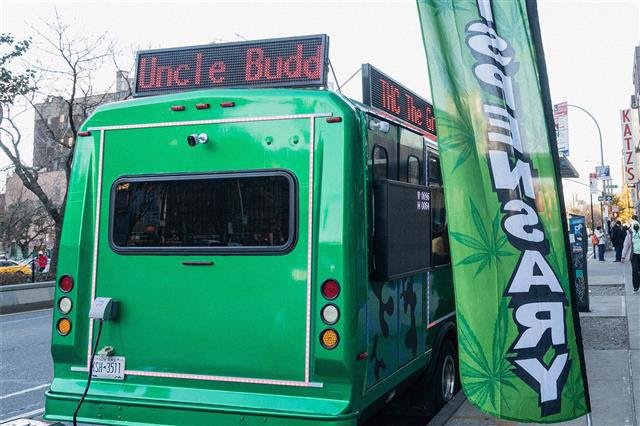Deep Dive: How New York's Grey Market Is Thriving
Image: Forbes
Like finance, fashion, hip hop, Timberlands, and pizza, cannabis has a distinct position in New York City lore.
When the state voted to legalize recreational cannabis in May of 2021, it signaled a new era for Big Apple cannabis, which could emerge from the black and grey market into becomnig a legitimate business pillar of the city.
However, like many states who have had a delay from legalization to implementation, New York City is within a prolongued period of stasis in regards to cannabis. This article in Forbes details the issue thusly:
"New York State legalized recreational cannabis last year, but regulators have yet to award any licenses to businesses, creating a quasi-lawless period when the state’s prohibition on pot is gone but there is no official market yet. (New York does have a small, highly restrictive medical market.)"
Because of this, several enterprising individuals have figured out clever workarounds to get cannabis to customers.
The Forbes article highlights three unique thoughts within this "wild west" cannabis environment.
1: Getting a Head Start On The Titans
People who are active in this wild west grey cannabis market see this as an opportuntiy to make a financial gain from cannabis before major cannabis companies come in.
The article states that these individuals are looking to "get a head start on what is projected to be a $4.2 billion market within five years before publicly-traded companies like billionaire Boris Jordan’s Curaleaf ($889 million in revenue during the first three quarters of 2021) and Green Thumb Industries ($650 million in revenue during the same period), are operating retail stores for recreational consumers."
2: For Weed to Be Illegal, there Must Be Compensation
One interesting loophole of the current cannabis landscape in New York City is that there must be compensation for the cannabis transaction to be out of bounds.
Because of this, these grey market entreprenuers have build creative business models. These include the The Green Truck, also known as “Uncle Budd.” The company operates six small, repurposed buses throughout the city and people can walk up, read the menu, and offer a “donation” and get pot in exchange.
3: The More "Legal" the Market, the More Illicit Activity
Legalization opens up a strange conundrum for states. While it provides an avenue towards legitimizing cannabis sales, regulation and taxation can also heighten black market activity in some cases.
“You don’t have a white market, a grey market and a black market—what you actually have is a spectrum,” says David Courtwright, a drug policy historian and author of The Age of Addiction. “The more you ratchet up the regulations and taxes, the more you’re going to have quasi-legal or illegal activity. It’s not just death and taxes that are inevitable—it’s death, taxes and grey markets. The second leading ineluctably to the third.”
What's Next?
The timeline for dispensaries to open and sales to kick off remains distant. The law doesn’t provide a specific timeline, but the first sales aren’t expected until at least 2022.
In that time, state legislators and law enforcement will have to juggle the competing forces of enforcing the letter of the cannabis law while being considerate of the second order consequences of such strict enforcement.
The state will also have the additional pressure of being the second largest market behind California, and the expectations and examples that come with that status.
Regardless, recreational cannabis in New York will be a positive thing. If the city is able to capture the creative, independent spirit of these wild west operators, it could be even more positive while remaining distinctly New York.
Read More: Welcome To New York, The Wild West Of Weed [FORBES]

